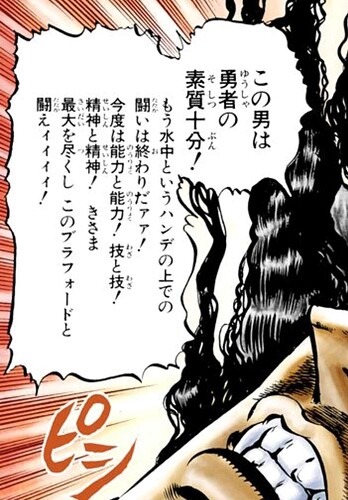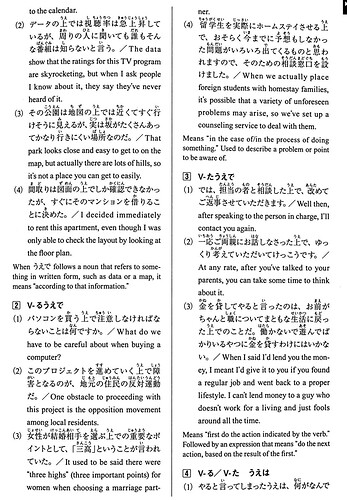Yep, I think it’s still essentially this same nuance, however it’s not being used to create an explicit logical progression of events like all of Bunpro’s example show (in the JoJo sentence, there’s no second action in the sequence that logically follows the first). That said, it’s still encompassing a sequence of events, and describing the fight as being greatly affected by the underwater handicap, forcing them to use more than just brute strength to win.
My dictionary lists a certain usage of 上で that seems to align closely with the JoJo example–see the sentence with 酒の上での与太話:
7 〔…の後〕 after…; 〔…の結果〕 on…; upon…; 〔…した時〕 when….
►熟考の上 after careful consideration; on second thought(s)
・電話連絡の上 after telephoning; after getting in touch by telephone
・書類選考の上 after screening candidates’ documents; after consideration of candidates’ written applications.
►酒の上で under the influence of ┏alcohol [*liquor]
・あの話は酒の上での与太話にすぎない. What I said was ┏just [no more than] drunken nonsense.
In that example, the speaker is saying the idle babbling was affected by/results from drinking alcohol.
We can apply this same sort of logic to the JoJo example too: the outcome of the fight was resultant from the handicap that both fighters had–it forced them to pit their spirits, wits and skills against each other’s in order to win.
See also the entry for V-るえうで in A Handbook of Japanese Grammar Patterns which shows some other nuances of 上で that also show a kind of progressive nuance:


